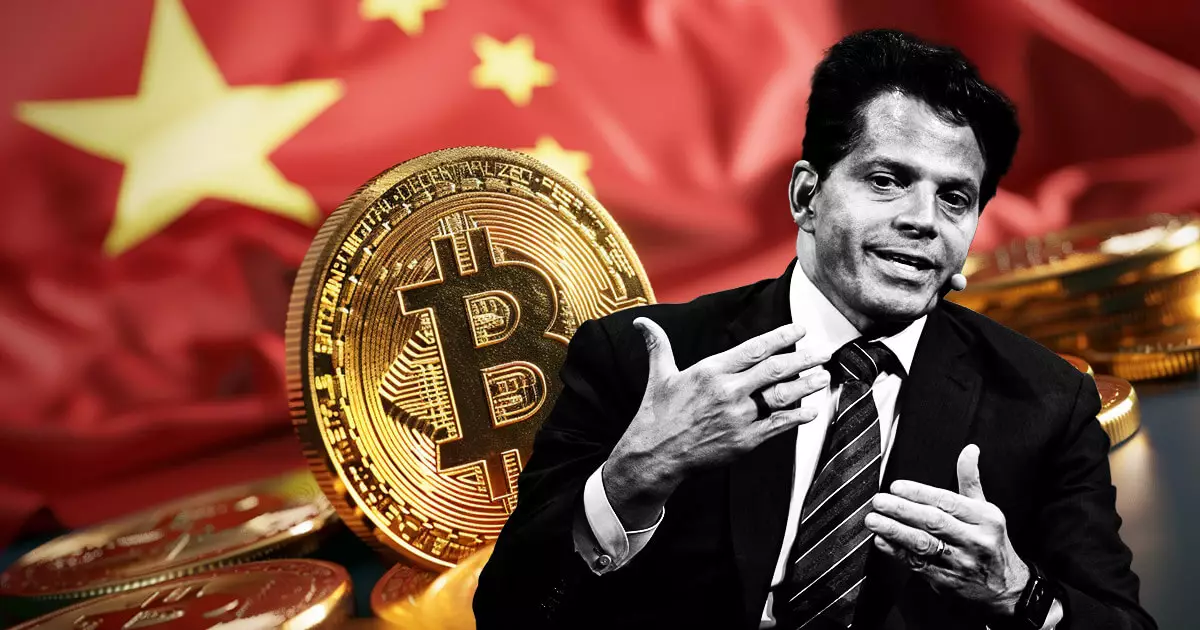In recent months, the conversation surrounding Bitcoin has transcended traditional market discourse, entering the realms of geopolitics and national strategy. Anthony Scaramucci, a well-known figure in financial circles, has ignited discussions around the potential for China to resume Bitcoin mining and may integrate Bitcoin into its national reserves. This bold prediction, made during the Bitcoin MENA 2024 conference, sheds light on the evolving dynamics of Bitcoin acceptance among nations and its implications for global finance.
Scaramucci’s remarks suggest that China may soon reassert itself in the Bitcoin mining arena after previously tightening regulations. This talk of reintroducing Bitcoin into China’s monetary fabric raises questions about how the country views cryptocurrency in the context of its economic policy. Given that the U.S. is displaying a more accepting stance towards Bitcoin, it can be inferred that China might feel pressured to pivot subtly in response to shifting global sentiments. The interplay between U.S. policies and China’s strategic decisions regarding Bitcoin could lead to significant transformations in the cryptocurrency landscape, potentially enhancing its legitimacy on the world stage.
Beyond China, there appears to be a growing momentum among various nations to consider Bitcoin as part of their financial ecosystems. Countries like Russia and Brazil are assessing the viability of Bitcoin reserves as a hedge against sanctions and economic instability. Russian lawmakers have proposed creating a national Bitcoin reserve, while Brazilian authorities have indicated intentions to funnel billions into Bitcoin as a safeguard for their fiscal health. These moves suggest a burgeoning recognition of Bitcoin’s potential to serve as a counterweight to geopolitical pressures and to enhance economic resilience.
The advocacy for Bitcoin as a strategic reserve isn’t restricted to states facing economic sanctions; it reflects a larger trend of governments reevaluating their asset portfolios. In the United States, discussions around establishing formal Bitcoin reserves have gained traction, especially following legislative proposals that call for significant long-term acquisitions. Notably, figures like Senator Cynthia Lummis have been vocal proponents of a multifaceted approach to Bitcoin holdings, indicating that there could be a paradigm shift regarding how digital assets are perceived within governmental finance.
The notion of Bitcoin as more than just a speculative investment is growing, with institutional interest indicating a broader acceptance of cryptocurrencies among traditional financial players. Leading asset management firms such as BlackRock have expressed support for the establishment of strategic Bitcoin reserves in the U.S. This institutional endorsement reflects a profound shift in how Bitcoin is viewed not only as a form of currency but as a vital component of national financial strategies.
As we approach pivotal events like the Bitcoin halving and the U.S. presidential election, the market dynamics surrounding Bitcoin are expected to evolve markedly. Historically, such events have bolstered Bitcoin’s value, as evidenced by its surge past $100,000 following significant political milestones. The increasing visibility of Bitcoin, especially leading into critical junctures, underscores its potential not merely as a financial asset but as a key player in the quest for economic sovereignty.
Despite the promising narrative surrounding Bitcoin reserves, skepticism remains. Detractors argue that the volatility inherent in Bitcoin could lead to wealth redistribution from taxpayers to a select group of Bitcoin holders. Concerns over regulatory challenges and the impact of economic cycles further complicate the prospect of large-scale Bitcoin integration into national reserves. Thus, while the allure of Bitcoin as a hedge against inflation and a means to circumvent sanctions may be compelling, it must be balanced against the unpredictable nature of the cryptocurrency market.
The discussions regarding Bitcoin’s role in national financial strategies encompass complex themes of geopolitics, economic strategy, and digital innovation. With China’s anticipated move towards Bitcoin integration and the U.S. establishing a more open dialogue on its strategic utility, the landscape is evolving. This potential shift could redefine not only how individual nations approach Bitcoin but also how the asset fits into the broader tapestry of global finance. As more governments explore the possibilities of Bitcoin reserves, the future of this digital asset may very well pivot towards becoming a cornerstone of national economic frameworks, heralding a new era in international finance.

